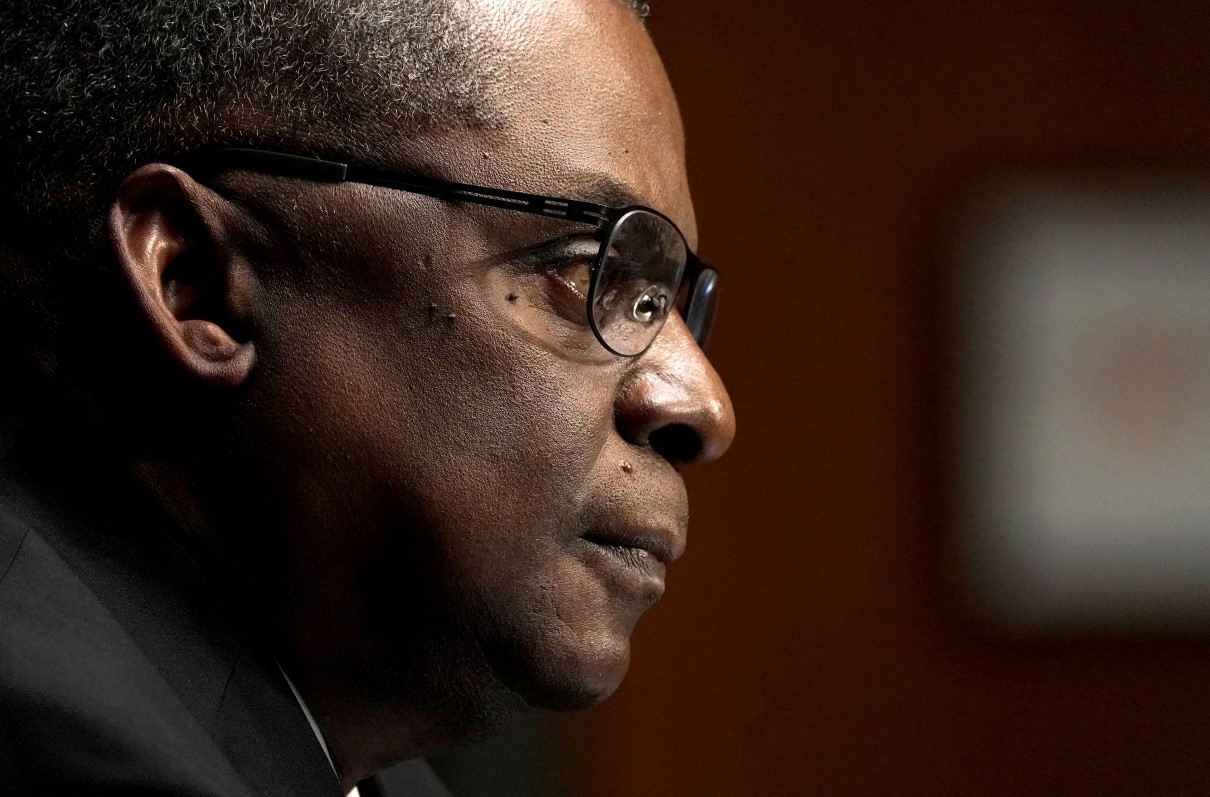Editor’s note: This article by Gina Harkins originally appeared on Military.com, a leading source of news for the military and veteran community.
The man on track to become the first Black defense secretary says he's committed to getting rid of racists, extremists and other problematic military personnel -- a pledge made as federal investigators comb National Guard members' backgrounds for indicators of troublesome ties ahead of this week's presidential inauguration.
Lloyd Austin, President-elect Joe Biden's pick for defense secretary, said the military can't win battles if it's fighting enemies within its own ranks. Troops deserve an environment free of discrimination, hate and harassment, Austin told members of the Senate Armed Services Committee on Tuesday.
It's an issue Austin said he personally experienced during his 41-year career as an Army officer.
"When I was a lieutenant colonel working in probably the finest one of the finest organizations in the Army -- 82nd Airborne Division -- we woke up one day and discovered that we had extremist elements in our ranks," Austin said. "... This has no place in the military, of the United States of America."
Austin's comments, made during his Senate confirmation hearing to lead the Defense Department, come amid high tensions in the nation's capital. Some armed groups have threatened to disrupt Biden's Jan. 20 inauguration, and more than 25,000 National Guard members have been dispatched to Washington, D.C., to secure the city.
Those troops are undergoing background checks after several military members and veterans were arrested after the violent Jan. 6 takeover of the U.S. Capitol.
"We can never take our hands off the wheel on this," Austin said of the possibility that troops with extreme views are serving in the ranks, though he added that he trusts the National Guard to carry out its security mission on Inauguration Day.
[RELATED: MOAA Outlines Early Recommendations for Biden Administration]
Austin faced scrutiny from lawmakers about how he would handle serving in the Pentagon's top civilian leadership spot. The retired four-star general, who led U.S. Central Command until 2016, has not completed the seven-year "cooling-off period" required of former service members to serve as defense secretary.
Several members of the committee -- Sens. Tom Cotton, an Arkansas Republican; Tammy Duckworth, an Illinois Democrat; and Richard Blumenthal, a Connecticut Democrat -- told Austin they won't support the waiver that will allow him to get around that rule.
Austin told senators he has spent nearly his entire carrying out decisions of civilian political leaders.
"In war and in peace I implemented the policies of civilians elected and appointed over me," he said. "... I know that being a member of the president's cabinet -- a political appointee -- requires a different perspective and unique duties from a career in uniform."
Austin declined to comment on several issues -- including whether he supports the Trump administration's aggressive shipbuilding plans or whether sexual assault cases should be handled outside the chain of command -- citing the need to get up to speed on the issues.
He did, however, thank Sen. Kirsten Gillibrand, D-N.Y., for her work in addressing the issue of military sexual assault, which Austin said he'll begin studying on Day One.
"I take the issue of sexual assault seriously and personally," Austin said. "... If confirmed, I would like to work with the chain of command and very rapidly assess what things need to be fixed or addressed."
Austin also said he supports overturning President Donald Trump's policy barring transgender people from serving in the military.
"I truly believe ... that if you're fit and you're qualified to serve and you can maintain the standards, you should be allowed to serve," he said.
Coronavirus relief efforts will be one of Austin's top priorities, he said. More than 400,000 Americans have died of COVID-19, the illness caused by the new coronavirus.
"We have to do everything we can to break the cycle of transmission," Austin said.
That will include looking at everything from vaccine distribution to vaccinating troops, he said, adding he believes there's more the Defense Department can do to address challenges relating to the pandemic.
Few details were offered about how troop posture might change if Austin becomes defense secretary. He referenced the need to deter and check China's aggression, but said the military can't be the only answer.
China presents the biggest threat to the U.S., he said.
When it comes to the country's longest armed conflict, Austin said he wants to reach a point in which Afghanistan no longer poses a threat to the U.S. Troops who served there made a difference, he added. Their service and sacrifice mattered.
"But I think this conflict needs to come to an end," Austin said.
MOAA Knows Why You Serve
We understand the needs and concerns of military families – and we’re here to help you meet life’s challenges along the way. Join MOAA now and get the support you need.
